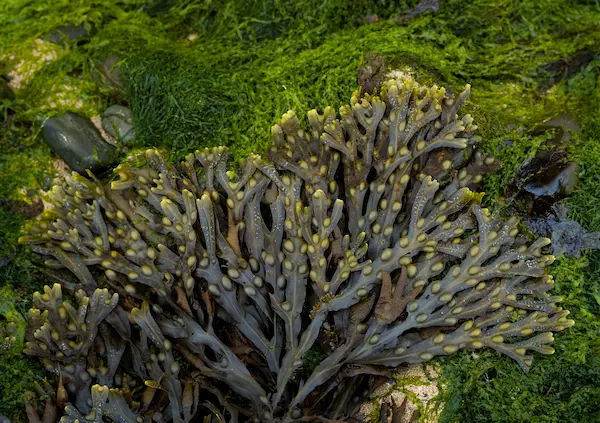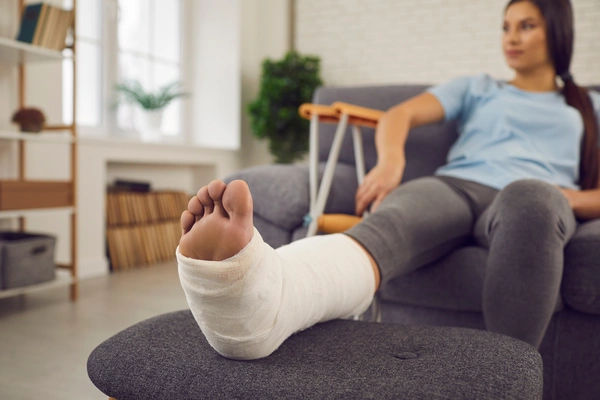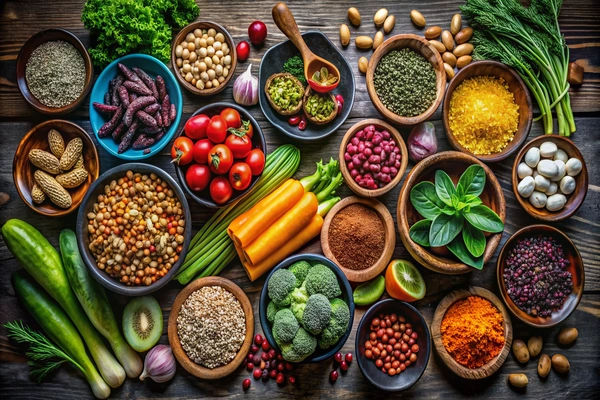Guide to Monsoon Sickness
Explore common monsoon sicknesses, their causes, symptoms, and prevention tips. Learn how to stay healthy and boost immunity during the rainy season.

Written by Dr. Rohinipriyanka Pondugula
Reviewed by Dr. Md Yusuf Shareef MBBS
Last updated on 13th Jan, 2026

The pitter-patter of rain brings relief from the scorching summer heat, but it also ushers in a season of heightened health challenges. Monsoon sickness is a common concern, as the increased humidity and stagnant water create a perfect breeding ground for viruses, bacteria, and mosquitoes. This comprehensive guide is your go-to resource for navigating the rainy season safely. We'll delve into the most common monsoon-related illnesses, from water-borne diseases like typhoid to vector-borne threats like dengue and malaria. More importantly, we'll equip you with practical, actionable strategies for prevention, outline effective home care tips for mild cases, and clearly explain when it's crucial to seek professional medical help. Whether you're looking to boost your immunity or care for a loved one, this guide will help you enjoy the monsoon while staying healthy and protected.
Why Are We More Prone to Illness During the Monsoon?
The monsoon's charm is undeniable, but the ecological changes it brings directly impact our health. Understanding these factors is the first step toward effective prevention.
The Role of Humidity and Stagnant Water
High humidity levels slow down the evaporation of sweat, making it harder for our bodies to regulate temperature and causing discomfort. This moisture-rich environment is a paradise for pathogens. Stagnant water in potholes, discarded containers, and clogged drains becomes a prolific breeding site for mosquitoes, leading to a spike in vector-borne diseases like dengue and malaria. Similarly, contaminated water sources can lead to outbreaks of water-borne illnesses.
Weakened Immunity and Temperature Fluctuations
The sudden shift between hot days and cooler, rainy evenings can stress the body, making it more vulnerable to infections. Furthermore, the humidity can affect our respiratory system, and the tendency to consume contaminated street food or water increases dramatically, introducing pathogens directly into our bodies.
Consult a Top Specialist
Common Monsoon Diseases and How to Identify Them
Recognizing the signs of common monsoon illnesses can help in seeking timely treatment.
Water-Borne Diseases (Typhoid, Cholera, Hepatitis A)
- Caused by consuming food or water contaminated with bacteria (S. Typhi, V. Cholerae) or viruses (Hepatitis A).
- Symptoms: High fever, stomach pain, vomiting, severe diarrhea (often watery in cholera), weakness, and jaundice (in Hepatitis A).
Vector-Borne Diseases (Dengue, Malaria, Chikungunya)
- Spread through the bite of infected mosquitoes.
- Dengue: High fever with severe headache, pain behind the eyes, muscle and joint pain, and skin rash.
- Malaria: Characterized by high fever with chills and sweating that occurs in cyclical patterns (every 48-72 hours).
- Chikungunya: High fever and debilitating joint pain that can persist for weeks.
Air-Borne and Viral Infections (Common Cold, Flu, Influenza)
Thrive in humid conditions and spread easily through droplets.
- Symptoms: Sneezing, runny or stuffy nose, sore throat, cough, body ache, and mild fever.
- Fungal and Bacterial Infections (Leptospirosis, Skin Infections)
- Leptospirosis: Caused by contact with water or soil contaminated with urine from infected animals. Symptoms include high fever, headache, muscle aches, and red eyes.
- Skin Infections: Fungal infections like ringworm and athlete's foot are common due to damp clothing and wet skin.
Your First Line of Defense: Proactive Prevention Strategies
An ounce of prevention is worth a pound of cure, especially during the monsoon.
Personal Hygiene: Non-Negotiable Habits
Wash your hands frequently with soap and water, especially before eating and after coming home from outside. Carry a hand sanitizer for times when soap isn't available.
Mosquito Repellent: Your Best Friend
Use EPA-approved mosquito repellents on exposed skin. Wear long-sleeved shirts and long pants when outdoors. Ensure window and door screens are intact. Regularly empty and clean any containers that can hold water around your home.
Dietary Do's and Don'ts: Eat Safe, Stay Safe
- Do: Drink only boiled or purified water. Eat freshly cooked, warm meals. Wash fruits and vegetables thoroughly. Include probiotics like yogurt in your diet.
- Don't: Eat raw or street food like chaat and cut fruits. Consume stale food.
Building a Strong Immune System for the Rainy Season
- A robust immune system is your best internal shield. Focus on a diet rich in antioxidants and vitamins.
- Vitamin C: Found in amla (Indian gooseberry), citrus fruits, and bell peppers, it helps boost white blood cell production.
- Zinc: Crucial for immune cell development, found in nuts, seeds, and legumes.
- Turmeric & Ginger: Possess natural anti-inflammatory and antibacterial properties.
- Stay Hydrated: Even if you don't feel as thirsty, drinking enough purified water is essential for flushing out toxins and maintaining overall health. If your diet is lacking, consider a supplement after consulting a doctor. Apollo24|7 offers a convenient home collection for tests like vitamin D or HbA1c to check your baseline health.
Home Care and Remedies for Mild Monsoon Ailments
- For a common cold or mild fever, supportive care at home can be effective.
- Steam Inhalation: Excellent for relieving nasal congestion.
- Gargling with Salt Water: Soothes a sore throat.
- Herbal Concoctions: Kadha made with tulsi (holy basil), ginger, black pepper, and honey can provide relief from cough and cold symptoms.
- Rest: Allow your body the time it needs to fight off the infection.
When to Seek Professional Medical Help
While home care is sufficient for mild cases, certain symptoms of viral fever or other illnesses warrant immediate medical attention. Seek help if you or a family member experience:
- High fever (above 102°F) that persists for more than 48 hours.
- Severe headache, vomiting, or abdominal pain.
- Difficulty breathing or shortness of breath.
- Signs of dehydration (dizziness, little to no urination).
- Rash or bleeding from any site.
- If symptoms persist beyond two weeks, consult a doctor online with Apollo24|7 for further evaluation and to rule out complications.
Special Care for Vulnerable Groups: Children and the Elderly
Children and the elderly have developing or weaker immune systems, making them more susceptible to severe monsoon sickness. Ensure they are always well-protected with rain gear, maintain strict hygiene, and are fed a nutritious, home-cooked diet. Be extra vigilant about any signs of illness and seek medical advice promptly.
Conclusion
The monsoon season is a time to enjoy the beauty of nature, but it demands a proactive approach to health. By understanding the risks, implementing strong preventive measures, and knowing when to seek help, you can significantly reduce your chances of falling ill. Remember, listening to your body is crucial. Don't ignore persistent symptoms, as early diagnosis and treatment are vital for a quick recovery. Embrace the rains, savor a cup of hot tea, but do so wisely. Stay dry, stay clean, and most importantly, stay healthy. If you're ever in doubt about your symptoms, booking a physical visit to a doctor with Apollo24|7 is a quick and reliable way to get expert care.
Consult a Top Specialist
Consult a Top Specialist

Dr. Abhishek Ranjan
General Practitioner
4 Years • MBBS
Kolkata
VDC Clinic, Kolkata

Dr. Ritwik A Burdol
General Physician/ Internal Medicine Specialist
18 Years • MBBS, MD (General Medicine)
Bengaluru
R V speciality Clinic, Bengaluru
(175+ Patients)

Dr. Dayanashre N
General Physician
3 Years • MBBS
Bengaluru
PRESTIGE SHANTHINIKETAN - SOCIETY CLINIC, Bengaluru

Dr. Swagato Podder
General Practitioner
5 Years • MBBS
Kolkata
GRD POLYCLINIC, Kolkata

Dr. Arif Ahmed
General Physician/ Internal Medicine Specialist
9 Years • MBBS, MD (Genl. Med.)
Kolkata
MCR SUPER SPECIALITY POLY CLINIC & PATHOLOGY, Kolkata
Consult a Top Specialist

Dr. Abhishek Ranjan
General Practitioner
4 Years • MBBS
Kolkata
VDC Clinic, Kolkata

Dr. Ritwik A Burdol
General Physician/ Internal Medicine Specialist
18 Years • MBBS, MD (General Medicine)
Bengaluru
R V speciality Clinic, Bengaluru
(175+ Patients)

Dr. Dayanashre N
General Physician
3 Years • MBBS
Bengaluru
PRESTIGE SHANTHINIKETAN - SOCIETY CLINIC, Bengaluru

Dr. Swagato Podder
General Practitioner
5 Years • MBBS
Kolkata
GRD POLYCLINIC, Kolkata

Dr. Arif Ahmed
General Physician/ Internal Medicine Specialist
9 Years • MBBS, MD (Genl. Med.)
Kolkata
MCR SUPER SPECIALITY POLY CLINIC & PATHOLOGY, Kolkata
More articles from General Medical Consultation
Frequently Asked Questions
What is the most common illness during monsoon?
The most common illnesses are viral fevers, the common cold, and flu due to the rapid spread of airborne viruses in humid conditions. Gastrointestinal infections from contaminated water and food are also very prevalent.
How can I protect myself from mosquitoes during monsoon?
Use a mosquito repellent cream or spray, wear full-sleeved clothing, and use mosquito nets or screens while sleeping. The most effective protection is to eliminate breeding grounds by ensuring no water is stagnant in and around your home.
What food should we avoid in the rainy season?
Avoid street food, raw salads (unless washed thoroughly at home), leafy vegetables (as they can harbor insects and germs), and cut fruits from outside vendors. Also, avoid consuming stale or pre-cut food.
Is it safe to walk in rainwater?
It is best to avoid walking through stagnant rainwater as it can be contaminated with sewage, animal urine, and other harmful bacteria, increasing the risk of infections like leptospirosis. If you do, wash your feet and legs thoroughly with soap and antiseptic liquid immediately afterward.
How can I boost my immunity naturally for the monsoon?
Incorporate immunity-boosting foods like citrus fruits, turmeric, ginger, garlic, yogurt, and nuts into your daily diet. Stay hydrated, get adequate sleep, and manage stress through light exercise or meditation.




